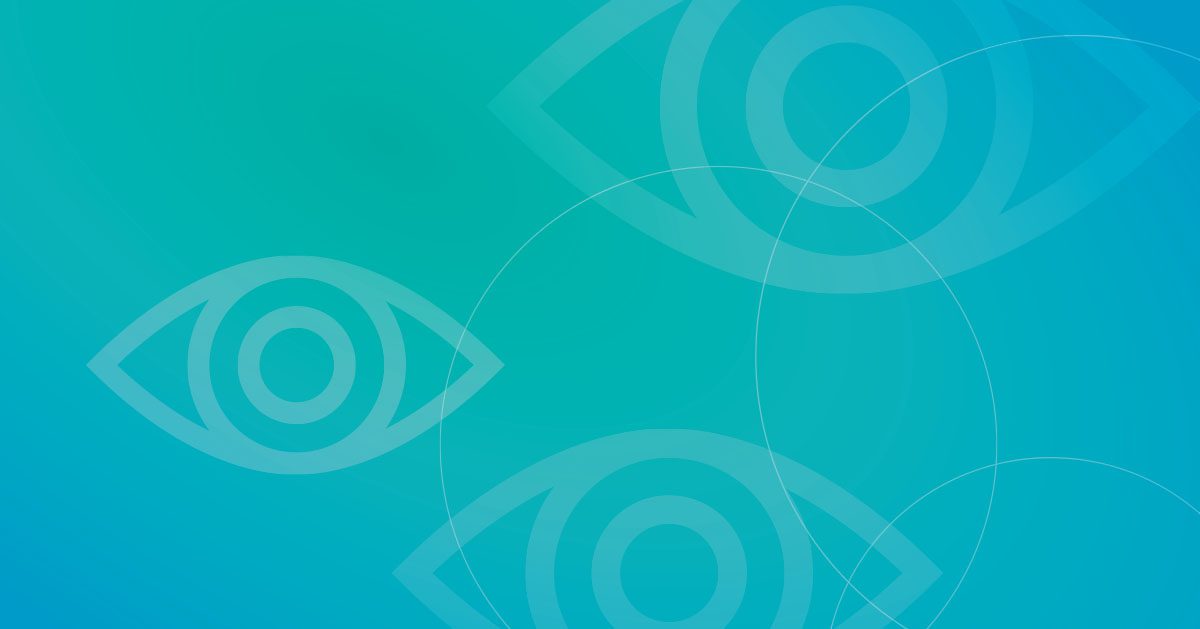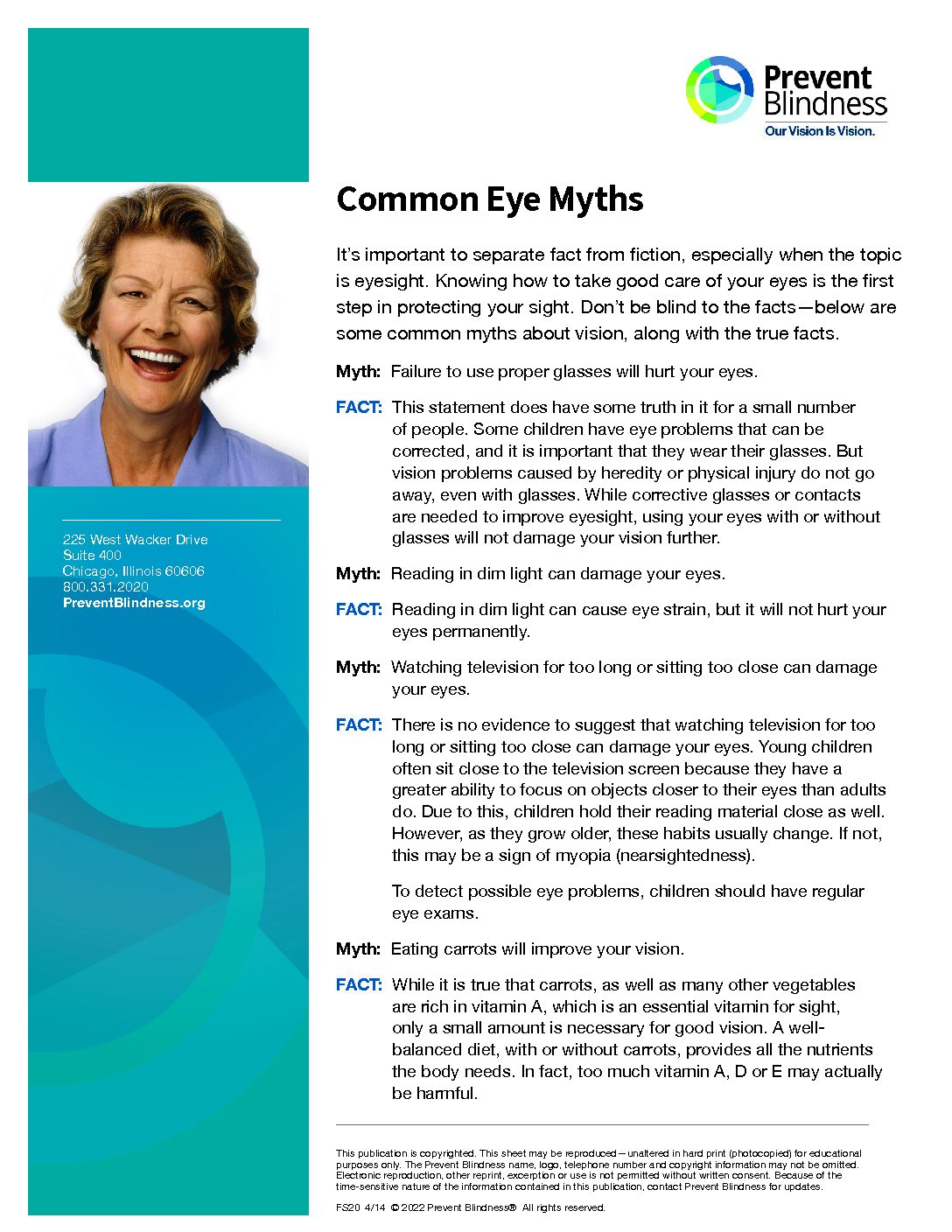It’s important to separate fact from fiction, especially when the topic is eyesight. Knowing how to take good care of your eyes is the first step in protecting your sight. Don’t be blind to the facts—below are common myths about vision, along with the true facts.
Myth: Failure to use proper glasses will hurt your eyes.
FACT: This statement does have some truth in it for a small number of people. Some children have eye problems that can be corrected, and it is important that they wear their glasses. But vision problems caused by heredity or physical injury do not go away, even with glasses. While corrective glasses or contacts are needed to improve eyesight, using your eyes with or without glasses will not damage your vision further.
Myth: Reading in dim light can damage your eyes.
FACT: Reading in dim light can cause eye strain, but it will not hurt your eyes permanently.
Common Eye Myth Fact Sheet
to Share and Print
Myth: Watching television for too long or sitting too close can damage your eyes.
FACT: There is no evidence to suggest that watching television for too long or sitting too close can damage your eyes. Young children often sit close to the television screen because they have a greater ability to focus on objects closer to their eyes than adults do. Due to this, children hold their reading material close as well. However, as they grow older, these habits usually change. If not, this may be a sign of myopia (nearsightedness).
To detect possible eye problems, children should have regular eye exams.
Myth: Eating carrots will improve your vision.
FACT: While it is true that carrots, as well as many other vegetables are rich in vitamin A, which is an essential vitamin for sight, only a small amount is necessary for good vision. A well-balanced diet, with or without carrots, provides all the nutrients the body needs. In fact, too much vitamin A, D or E may actually be harmful.
Myth: Reading fine print for too long will wear out or damage your eyes.
FACT: This is one of the most widely held myths about vision. Some people are concerned that they should not read too much because it will wear out their eyes. Although extensive or prolonged reading of fine print can cause eye strain, there is no evidence to suggest that it will damage or wear out your eyes.
Myth: Wearing contacts prevents nearsightedness from getting worse.
FACT: Wearing contact lenses will not permanently correct nearsightedness. Myopia or nearsightedness is usually an inherited condition, and contact lenses can only be expected to improve vision. Contact lenses cannot prevent nearsightedness from getting worse.
Myth: Cataracts can be removed with a laser.
FACT: A cataract is a clouded lens of the eye—this procedure cannot be performed by a laser, only by surgery. However, after the surgery, the wrapping around the lens (called the casing) is left behind. This casing can become cloudy and cause blurry vision. The casing can then be opened with a laser, but the procedure should not be confused with the surgical removal of the clouded lens.
Myth: An eye examination is necessary only if you’re having problems.
FACT: Everyone should follow proper eye healthcare, which includes regular eye exams, whether or not you are having any noticeable signs of problems. Children should be tested at birth, at 6 months of age, before entering school and periodically throughout the school years. For adults, the frequency depends on your doctor’s advice and may be every two years or more often. If you have diabetes or an eye disease, you should go every year for a comprehensive eye exam.
Myth: There’s nothing you can do to prevent vision loss.
FACT: More than 90% of eye injuries can be prevented, when simple and relatively inexpensive safety precautions are followed. That means choosing the correct eye safety glasses for the job and wearing them 100% of the time. Regular eye exams can help save your sight. Early detection of vision problems is crucial to preventing vision loss from many eye diseases—especially diabetic retinopathy and glaucoma.



